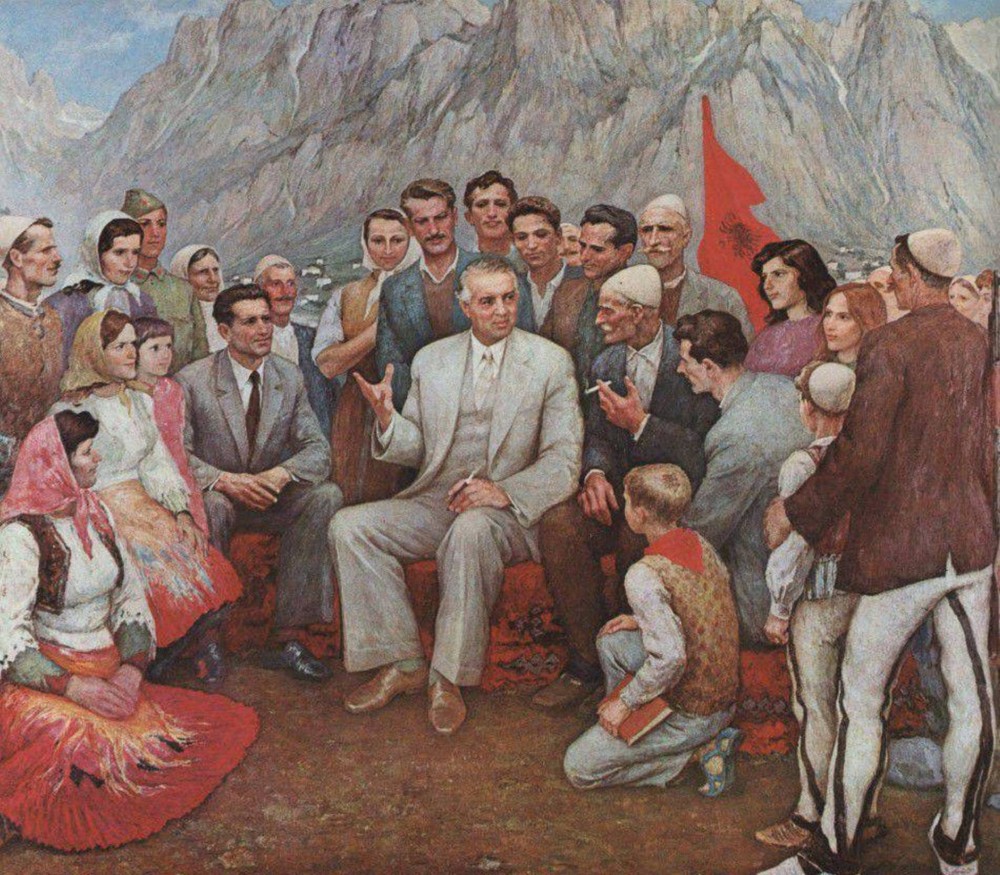
Enver Khalil Hoxha — Albanian statesman, politician, military and party leader, the leader of Albania in 1944-1985. Having come to power, he focused on rebuilding the country destroyed by the war. The article shows that for more than forty years of his leadership, success has been achieved in the development of the economy, education and social security of the population. At the same time, Hoxha is criticized for political repression, which included extrajudicial killings and executions of competitors and “disloyal elements” among party members, a complete ban on any religious activity, and the creation and use of forced labor camps. As a leader, Enver Hoxha belongs to the recent past of a political and economic system that practically does not exist today. Nevertheless, according to the authors of this article, it makes sense to remember him and evaluate his activities from the point of view of the present day. The methodological basis for writing the article was the concept of a political leader, as “insight” into the essence of the personality of the Albanian leader. The authors consider that the definition of a political leader proposed by Jean Blondel is the most appropriate in this context. The content of the article substantiates the implication of this definition in relation to the activities of the Albanian communist dictator. Attention is drawn to the fact that already the I Congress of the Albanian Communist Party (1948) declared adherence to the experience of the USSR and the CPSU (b) and called on the Albanians to fulfill Stalin’s five-year plans. At the same time, a campaign against the “enemies of the people” was launched in the country, led by Sigurimi, the Albanian counterpart of the NKVD. The article emphasizes that Hoxha was in sharp disagreement with the liberalization policy of the USSR initiated by Nikita Khrushchev. As a result, the political vector changed: Soviet-Albanian relations deteriorated and were cut off permanently after a few years, while the Albanian leadership became closer to China. In 1957, the People’s Republic of China assured Hoxha of political and economic support and actually provided quite substantial assistance. Attention is called to the fact that Albania for the People’s Republic of China has long been the only political ally in Europe and the world, a spokesman for the United Nations and an important propaganda partner. However, according to the authors, in the late 1970s, Hoxha broke off relations with China and closed the country to the rest of the world. At the end of the article, analytical conclusions are given regarding Stalin-Lenin socialism in Europe and the role of Enver Hoxha as the last representative of orthodox communism in Europe. The authors summarize that he was an atypical figure among the socialist leaders of that time, surrounded by the halo of the people's leader and “father of the nation.” The historical traditions of Albania contributed to the fact that the ideas and methods of implementing people’s power, put forward by Enver Hoxha and his inner circle, proved to be in wide demand by the society.
Source: Gugnin A., Lisnievska Yu. (2022). Enver Hoxha and Eurostalinism. Grani. 25(4): 50-59
Source web-site: https://grani.org.ua/index.php/journal/article/view/1795/1764
Number of views: 2342